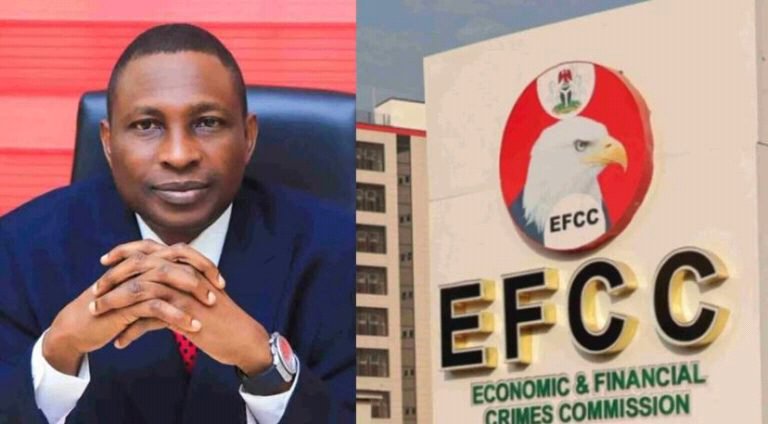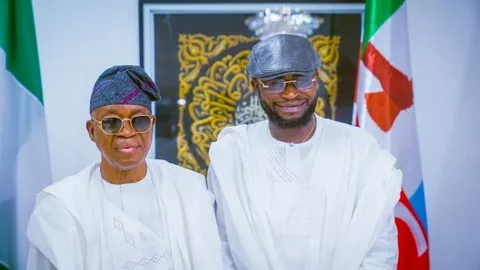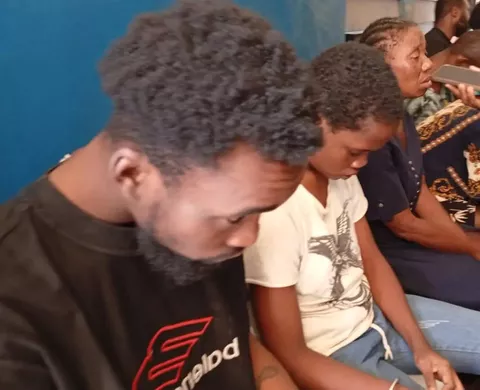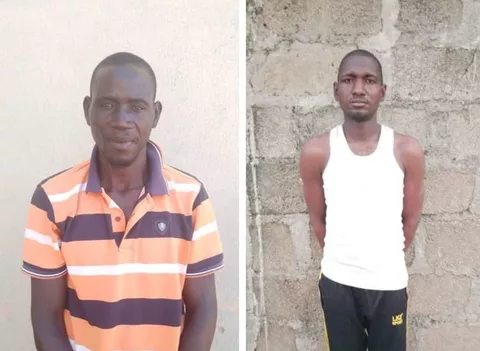Economic and Financial Crimes Commission, on Thursday, announced the successful prosecution of four former governors and two former ministers over the past 12 months under the leadership of Executive Chairman, Ola Olukoyede.
Olukoyede, represented by the agency’s Director of Public Affairs, Wilson Uwujaren, during a press briefing in Abuja, highlighted the anti-graft Agency’s significant achievements in asset recovery and fraud prevention.
According to him, high-profile figures charged include former governors Yahaya Bello (Kogi), Abdulfatah Ahmed (Kwara), Willie Obiano (Anambra), and Darius Ishaku (Taraba) for serious allegations involving billions in state funds. Bello faces charges related to over N190 billion, Ishaku and a former official for N27 billion, Ahmed and his former finance commissioner for mismanagement of N10 billion, and Obiano for money laundering and theft of N4 billion.
He disclosed that the EFCC has also charged former ministers Saleh Mamman and Olu Agunloye for misappropriating funds from the Mambilla Hydroelectric Power Project (N33.8 billion and $6 billion, respectively). Hadi Sirika faces two cases, including fraud involving N5.8 billion.
The EFCC boss explained that investigation continues into Betta Edu, the sacked Minister of Humanitarian Affairs, for alleged misconduct, with N30 billion recovered and 40 linked bank accounts under scrutiny.
Olukoyede stressed that the EFCC is tackling illegal vote trading and has pursued individuals involved in vote-buying during recent elections.
On the matter of crossdresser and social media influencer, Idris Okuneye also known as Bobrisky, the EFCC stated it will not tolerate corruption within its ranks after allegations of bribery to drop money laundering charges against him.
Olukoyede added that the agency has made significant progress in combating illegal mining, leading to arrests and investigations.
He explained that in the past year, the EFCC reclaimed assets worth N248.7 billion and has made strides against currency hoarding, achieving over 35 convictions.
He added that the EFCC also focused on asset repatriation, returning $180,300 and 53 vehicles to Canada and €5,100 to Spain. Domestically, 14 properties were returned to the Enugu State government....Read Full Article [Click Here>]
The EFCC chairman reiterated that the agency remains committed to transparency and accountability in combating corruption in Nigeria.
The anti-graft agency said, “In Ola Olukoyede’s one year as EFCC Chairman, from October 18, 2023, to October 18, 2024, the Commission has charged four former governors—Yahaya Adoza Bello (Kogi), Abdulfatah Ahmed (Kwara), Willie Obiano (Anambra), and Darius Dickson Ishaku (Taraba)—to court for alleged corruption.
“The Commission under my watch secured 3,455 convictions across all categories of financial crimes and corruption. The monetary asset recoveries have been noteworthy as well, with N248,750,049,365.52 recovered in Naira. In the same year, the EFCC recorded $105,423,190.39 in foreign currencies, demonstrating a strong focus on asset recovery.
“We have a comprehensive docket of cases that span various sectors of society, including the mining sector.
“Regarding the investigation into the allegations by Bobrisky and VeryDarkman, I am certain that the investigative process will conclude effectively. If any misconduct is confirmed, appropriate action will be taken. Throughout my years here, I have witnessed law enforcement personnel being held accountable for professional misconduct.
“On vote trading, the commission has done significant work in preventing both the buying and selling of votes in recent elections, especially in runoff elections. This effort aims to deter such behaviour, and I am aware that we have conducted several prosecutions when arrests were made.
“According to the law, it is the responsibility of INEC to prosecute electoral offences. However, we face challenges, and the message is that we must remain vigilant.
“We need to focus on addressing cases and charges against those involved in electoral offences.
“It’s important to note that different agencies have distinct mandates. While the EFCC handles law enforcement, other regulatory bodies have their responsibilities within the ICT ecosystem.





